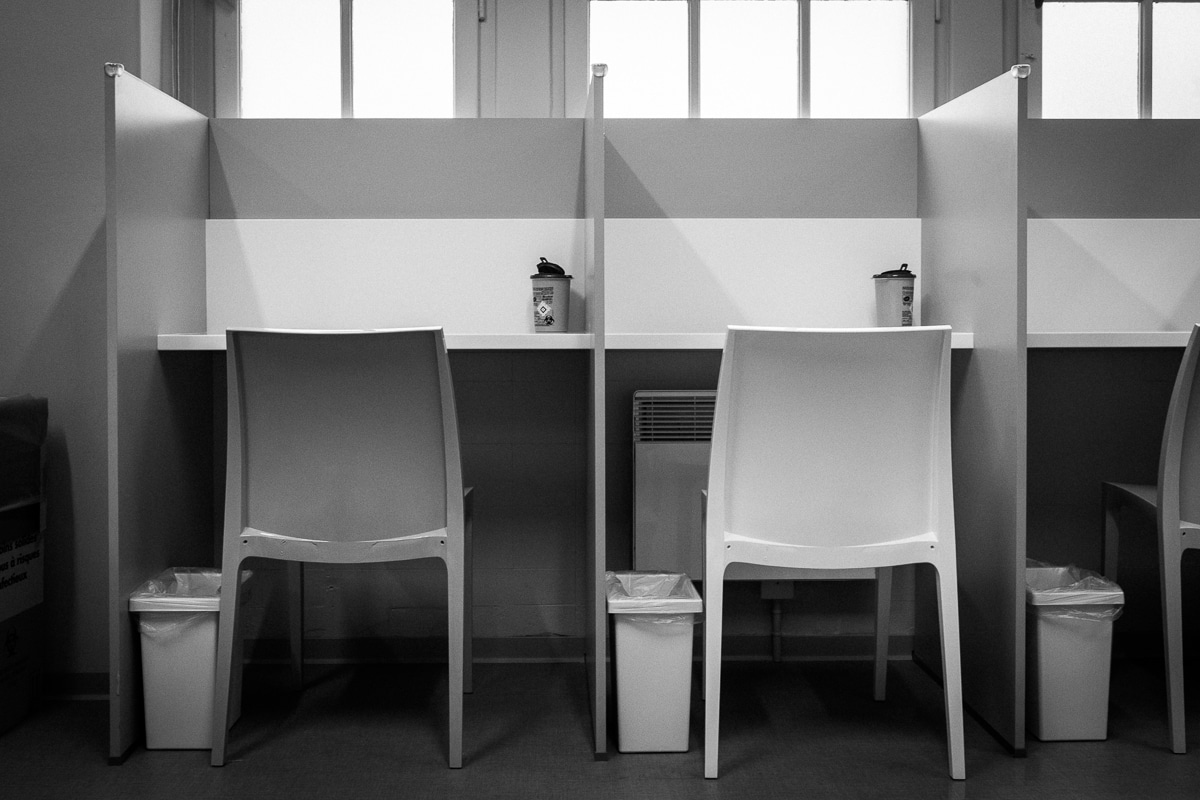On June 29, the Rhode Island House of Representatives voted in favor of a bill to authorize safe consumption sites, or harm reduction centers as it terms them, in the state. People could bring their illegal drugs to these sites and use them in the presence of staff trained to respond to overdoses and other issues. Such programs are proven to save lives.
“We are in a crisis,” said Ashley Perry, program manager at Project Weber/Renew, a Rhode Island harm reduction organization that supported the legislation. “It’s really an atrocity. Almost 400 people lost their lives in 2020 and we expect it to be the same if not worse this year. I am happy our lawmakers are stepping up with important policies that will save lives.”
The House approved Bill 5245A, introduced by Representative John G. Edwards (D-70th District). The bill will establish a pilot program for harm reduction centers throughout the state.
“We don’t anticipate any complications going forward. It looks good.”
The state Senate already approved very similar legislation, Bill 0016A, on February 23. It still has to approve a technical change in the House bill, introducing a sunset clause that nullifies the legislation after March 2024. Advocates are betting that this clause will not ultimately be enacted, anticipating that elected officials will see over the next two years that harm reduction centers work.
Once the Senate approves this amended bill, it will send it to Governor Dan McKee.
“He has indicated his support,” said Haley McKee*, the co-chair of the Substance Use Policy, Education, and Recovery (SUPER) PAC. “His Governor’s Task Force has also been on the forefront of this issue. We don’t anticipate any complications going forward. It looks good.”
Overdoses spiked in Rhode Island between 2009 and 2016, more than doubling to 336 annual deaths. In the three years that followed, overdose deaths fell each year. But in 2020, amid a national surge during the pandemic, overdose deaths increased dramatically; 384 people in Rhode Island lost their lives.
According to state health department research, factors in this increase included higher consumption of cocaine and alcohol, as well as the prevalence of fentanyl. Men and Black residents are being hit hardest by increasing overdose deaths.
Last year, an overwhelming 90 percent of such deaths occurred in private settings. Those that involved opioids—the large majority, although most opioid-involved deaths also involve other substances—could have been prevented by the presence of another person with naloxone.
That’s where the state’s planned harm reduction centers will help. As well as staff trained and equipped to reverse overdoses, Rhode Island’s facilities will provide other medical services like screening for HIV, as well as referrals to substance use treatment programs.
Around 120 safe consumption sites (SCS) already operate legally in 10 countries, and over 100 peer-reviewed studies attest to their benefits in saving lives and improving public health. No sanctioned sites have yet been opened in the United States—although Safehouse has come very close to opening one in Philadelphia. Legislative bodies in states including New Mexico and California have also approved SCS, and efforts to open them are being conducted in cities including New York, Baltimore, San Francisco and Seattle.
The Rhode Island bill would take effect immediately after the governor’s signature. It requires the state’s health director to convene an advisory committee, to include a diverse group of people with professional backgrounds including harm reduction, addiction treatment, medicine, law enforcement and local government. The committee will help to create more concrete regulations for harm reduction centers, and the health director will then implement them by March 2022.
Unfortunately, the bill does not provide any public funding for the harm reduction centers, requiring them to seek private donations or grants. But advocates consider this a necessary trade-off to win approval in the first place.
“My state representative said ‘not in my backyard’ about this bill.”
The legislation also stipulates that individual city and town governments will get to vote on the approval of centers in their jurisdictions, deciding where they will be located and when they will operate.
That leaves advocates preparing for anticipated political battles with city councils. The potential difficulty of obtaining local consent should not be underestimated. As Filter has often reported, syringe service programs throughout the country are constantly under attack by local elected officials, businesses, and certain residents. And it was fierce community opposition that helped to block Philadelphia’s proposed SCS.
“My state Representative Anastasia Williams said ‘not in my backyard’ about this bill,” said Haley McKee. “But I can tell you walking out of the building that I live in, that was first designated to host a safe injection facility, there’s an ambulance outside my house every single day. She is denying access to the people who live in my district.”
Despite these potential challenges, Rhode Island advocates have cause for optimism given their groundbreaking progress—and reason for determination amid unacceptable and preventable deaths.
McKee explained that overdose has become so prevalent in Rhode Island that almost everyone is affected personally by it in some way. This tragic situation, she suggested, has influenced those in power.
“Our House sponsor Representative Edwards has last two close cousins to overdose,” McKee said. “We have another state representative who lost his daughter to overdose. We also have a very strong recovery community who shows up and advocates for these policies. They are brave enough to come out and say, ‘I survived this and I am living proof this is possible.’”
*Update September 7, 2021: An earlier version of this story incorrectly stated Haley McKee has no relation to Gov. Dan McKee. Gov. McKee is in fact Haley’s father’s cousin.
Photograph of a safe consumption site in Strasbourg, France by Claude TRUONG-NGOC via Wikimedia Commons/Creative Commons 3.0.





Show Comments